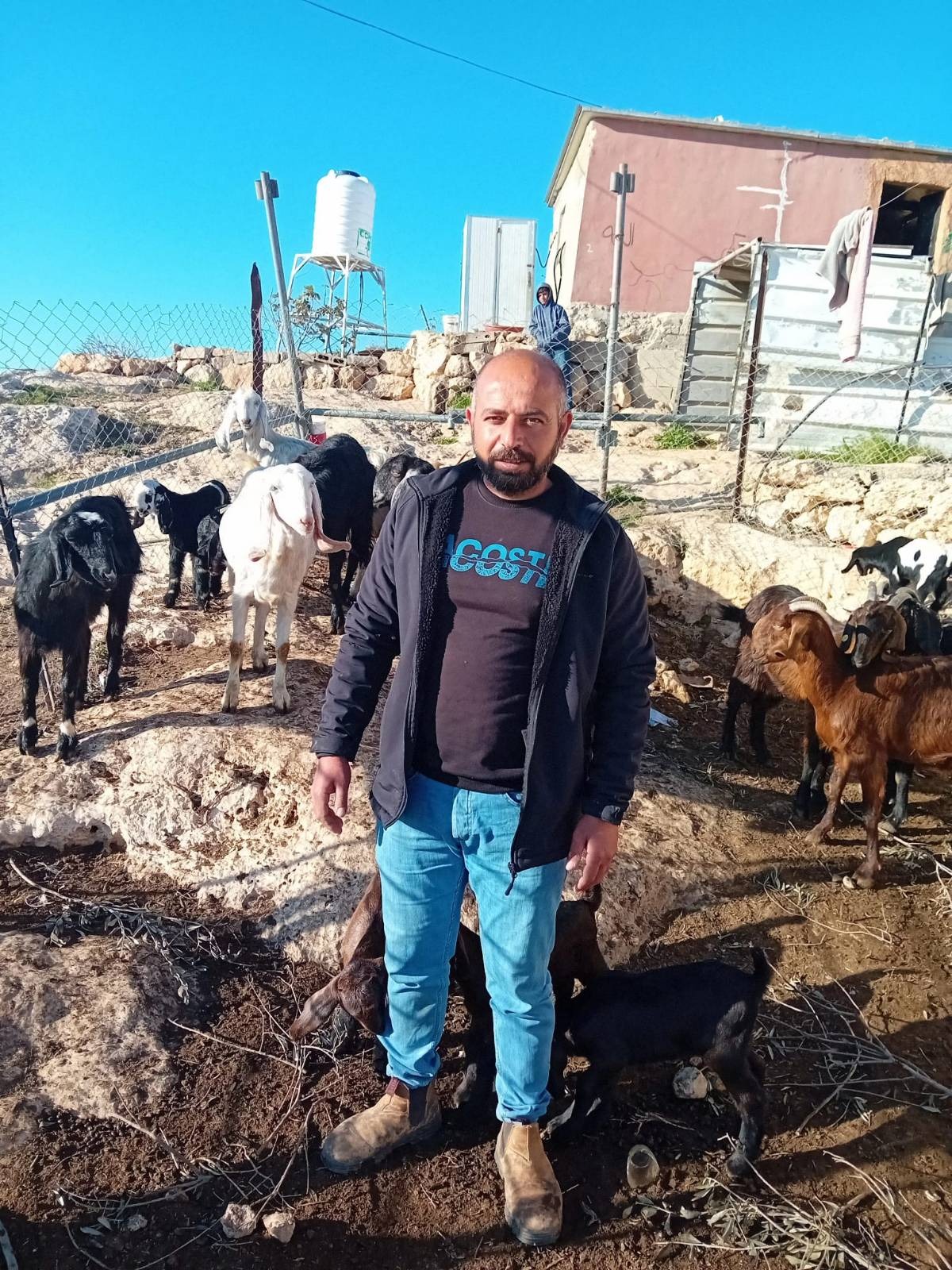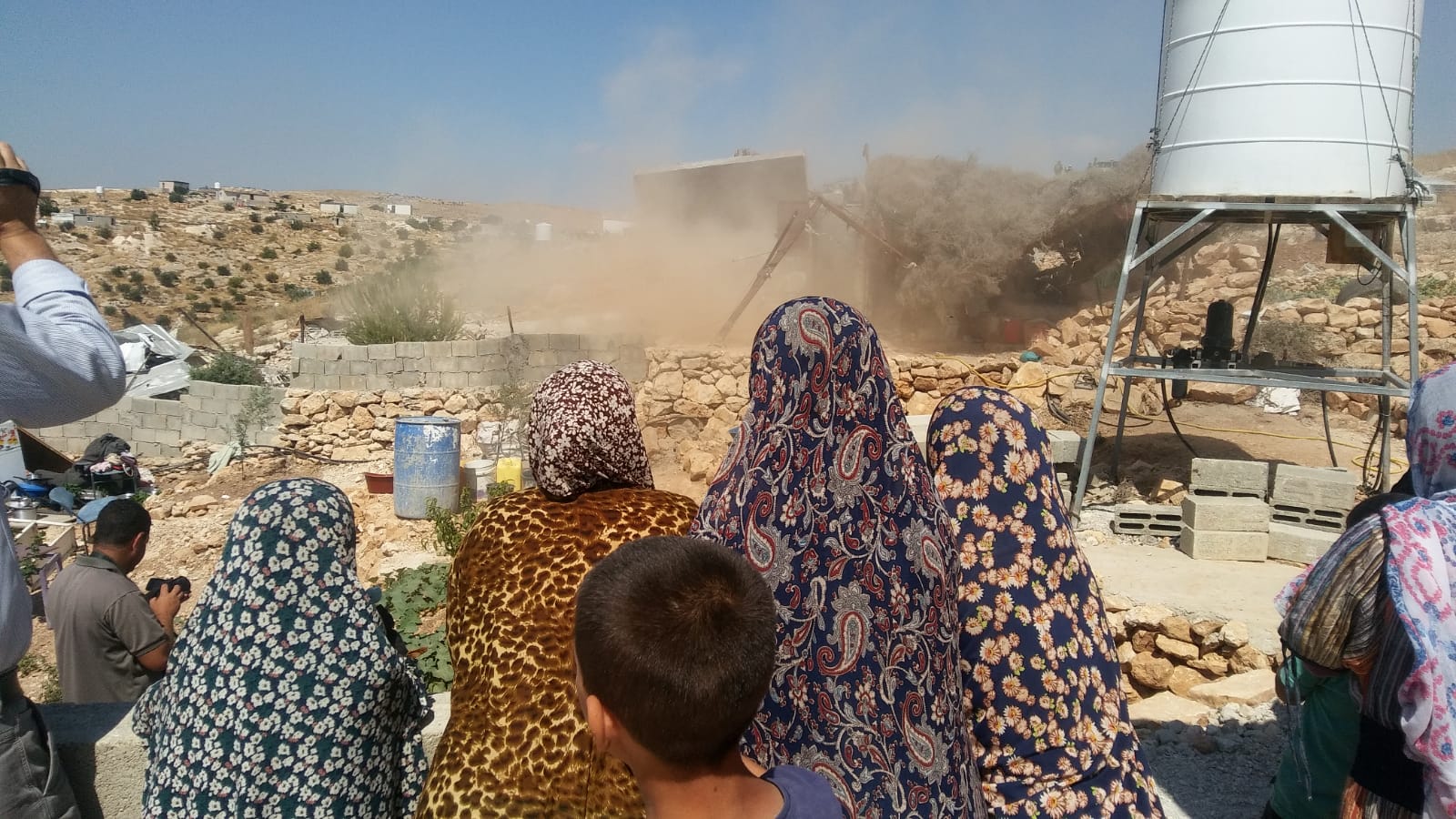Tag: Khalet al Dabeh
-

When Shepherding Your Flock Becomes a Crime
16 January 2024 | International Solidarity Movement | Masafer Yatta Muhammed being led away by IOF soldiers. Credit: ISM. For the villagers of Khallet Al Dabaa, in Masafer Yatta, shepherding is a traditional way of life. One which they have followed on their traditional lands in the West Bank’s South Hebron Hills since Ottoman…
-

Villagers live in fear and uncertainty as four more homes demolished in South Hebron Hills
June 18, 2019 | International Solidarity Movement | South Hebron Hills, occupied Palestine Occupation forces went on a demolition spree yesterday in the South Hebron Hills, bulldozing the homes of four families in two villages. A convoy of border police, Israeli Civil Administration officials, soldiers and two JCB bulldozers arrived in the village of Khalet…
